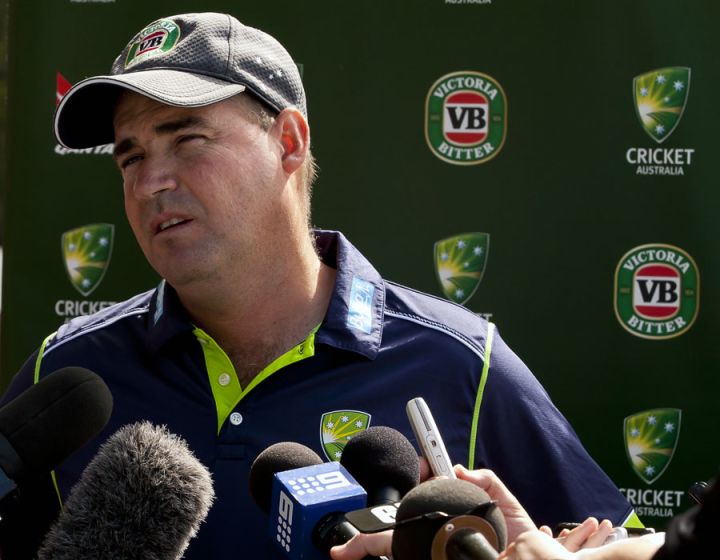My sacking helped Lehmann - Arthur
Australia's former coach Mickey Arthur believes his troubled tenure and dramatic sacking served a purpose in allowing Darren Lehmann to have the autonomy the South African craved but never achieved

Australia's former coach Mickey Arthur believes his troubled tenure and dramatic sacking served a useful purpose in allowing his successor Darren Lehmann to have the sort of autonomy the South African craved but never achieved.
Arthur makes the admission in Whitewash to Whitewash, a new book by ESPNcricinfo's assistant editor Daniel Brettig that will be released on Wednesday. Lehmann's appointment as coach on the eve of the 2013 Ashes series in England followed a period of rare dysfunction in the national team, something the affable Arthur struggled to contain in India and at the Champions Trophy.
Chosen to replace Tim Nielsen as coach in an expanded role following the Argus review in 2011, Arthur said he was unable to assert enough authority. This was not only over players subjected to suspensions in India and England, but also the team's new performance chief Pat Howard, the man who ultimately informed the coach his services were no longer required.
"I felt with Australia I never had the freedom to do it [my way], simply because I always felt suffocated," Arthur says in the book. "I felt there were so many people touching the team - and I said this numerous times to Pat - I wanted the freedom to run the team the way I knew I could, and I never, ever felt I had that freedom.
"When I ran South Africa there was a selection panel, but I would pick teams and had a lot more freedom. At CA I felt every decision we were going to make I had to make five phone calls to five different people, whereas with South Africa I just made my decision, put it in my report and told the board at the next meeting."
At the time of Arthur's sacking, which took place in Bristol the day before the Ashes squad was due to assemble in Taunton, senior figures advised Howard and the chief executive James Sutherland that if they were to give the job to Lehmann, he had to be allowed to do things his own way, even if it did not always correspond neatly with Cricket Australia's corporate image.
The former captain Ricky Ponting offered this opinion to Howard, while the Australian Cricketers Association chief executive Paul Marsh, who had worked alongside Lehmann when he was president of the players' union, spoke with similar force about allowing the coach to work with a strong degree of independence.
"I cast back to the whole discussion we had in Perth during Monkeygate in 2008 and the image of the team,' Marsh remembers. "I said to James, 'Darren's strengths are the way he goes about it and the way he builds relationships and they're not necessarily aligned with the direction you've been taking CA and the behaviour of the team and all the rest of it. You've got to let him do his own job, because that's his strength.'
"I'd worked with him at the ACA and I know what he's like, and if they'd tried to control him and cast him in the CA image it wouldn't have worked. They had to let him loose and let him be who he is and let him go about it. They've done that and hello, the Australian public's fallen in love with him."
Arthur was hurt by his dismissal, but now reasons that it was a painful but necessary step towards Australian cricket's more recent successes. Most notably, Howard is nowhere near as hands-on with the team and the selectors as he was during Arthur's time, trusting that Lehmann is in control.
"I've spoken to a lot of people and they say Pat's hardly ever around now," Arthur says. "When I was there, he was there every minute of every day. Everything I wanted is what Darren has, and Darren's now running it the way I ran South Africa, and I'm really chuffed for him because that's the way it should be.
"I missed that because everyone was trying to find role-definition and clambering over each other to find their sense of authority. The roles were all blurred and intermingled. The one thing the sacking did was that the roles then got clearly defined, because they realised that mistakes had been made. I was the fall guy for Darren to get total autonomy over the team, which is great, because that's how it should be."
An edited extract of the chapter covering Arthur's sacking and Lehmann's appointment will be published on ESPNcricinfo on Wednesday.
Read in App
Elevate your reading experience on ESPNcricinfo App.